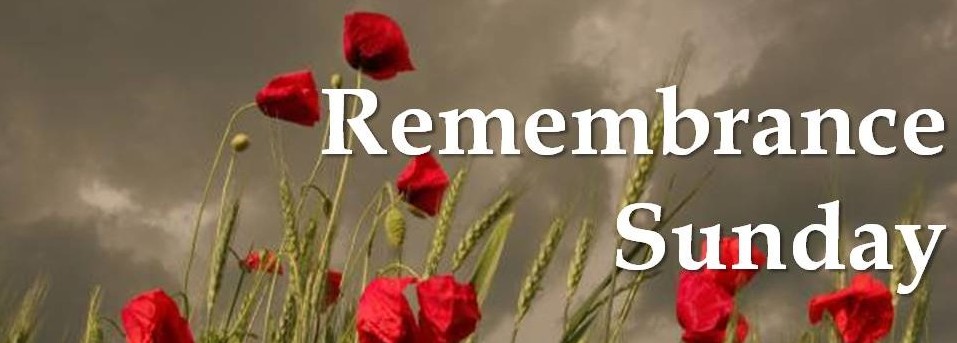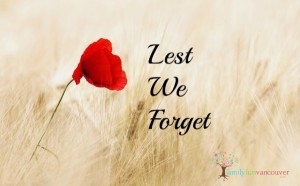Notes on the Notes – November 12, 2017

This Week’s Theme:
Where Do We Go From Here?
This Week’s Scripture Readings:
Wisdom 6:12-16, 17-20 Amos 5:18-24 Psalm 70
This Week’s Music:
“God Weeps” (MV #78)
“God weeps at love withheld, at strength misused,
At children’s innocence abused,
And till we change the way we love, God weeps.
God bleeds at anger’s fist, at trust betrayed,
At women battered and afraid,
And till we change the way we win,
God bleeds.
God cries at hungry mouths,
At running sores,
At creatures dying without cause,
And till we change the way we care, God cries.
God waits for stones to melt, for peace to see,
For hearts to hold each other’s need,
And till we understand the Christ, God waits.”
This hymn was written by Shirley Erena Murray (1994) and set to music by Jim Strathdee (1998).
Why is it so difficult to sing, “God weeps?” Great hymn writers of the past have certainly communicated God’s power, might and strength, but have left us unprepared for singing of God’s relationship to our pain as God’s own pain.
So many people walk through church doors overcome by agony inflicted by abusive relationships, poverty and injustice, yet are told by the thoughts, words and deeds in worship that their pain does not require corporate acknowledgment and action.
Born in Invercargill, New Zealand in 1931, Shirley Erena Murray is a hymn text writer and hymnal editor working to expand the 21st-century church’s song. Using pithy and economical language, her profound and challenging texts present an unquestionably clear message to the modern hymn singer.
“God Weeps” not only gives the church a way to acknowledge the pain of the most vulnerable in our world, but also reminds us that Christ suffers as we suffer. The hymn addresses a 21st-century world’s pain and injustice in contemporary language. The text alludes to Jesus’ teaching as recorded in Matthew 25, which tells us that when we serve “one of the least,” we serve Christ, and when we fail to confront injustice and protect the weakest of our brothers and sisters, we fail Christ.
The challenge in Ms. Murray’s text is two-fold. Addressing the pain in themselves, or their brother or sister in Christ, singers of the hymn must express the sadness of a broken world full of violence, oppression and abuse. Ms. Murray profoundly communicates that God has given us the responsibility for changing “the way we love . . . win . . . care . . . and understand the Christ.” By repeating the phrase, “till we change,” she gives hope and comfort to agonizing souls, reminding them that until God’s will is on earth as in heaven, God will continue to suffer with them. (Source: https://www.umcdiscipleship.org/resources/history-of-hymns-hymn-challenges-singers-through-images-of-sorrow)
Hear the song at: https://vimeo.com/105942124
“God! As With Silent Hearts” (VU #527)
“God! As with silent hearts we bring to mind how hate and war diminish humankind,
We pause, and seek in worship to increase our knowledge of the things that make for peace.
Hallow our will as humbly we recall the lives of those who gave and give their all.
We thank you, God, for women, children, men
Who seek to serve in love, today as then.
Give us deep faith to comfort those who mourn,
High hope to share with all the newly born,
Strong love in our pursuit of human worth:
‘Lest we forget’ the future of this earth.
So, Prince of Peace, disarm our trust in power,
Teach us to coax the plant of peace to flower.
May we, impassioned by your living Word, remember forward to a world restored.”
Of Dutch birth, Fred Kaan was ordained into the Congregational Church (now the United Reformed Church) in 1955. This hymn is from “Planting Trees and Sowing Seeds” (1975), a collection written by Kaan with the late composer Doreen Potter. The tune is LANGRAN, well-known as the tune from the communion hymn “Here, O My Lord, I See You Face to Face.”
Hear the hymn played on organ at: https://www.youtube.com/watch?v=XD7HQd87xxE
“A Hymn of Remembrance”
“O God of endless ages, whose will is still that we
Should live in peace and freedom, with love of liberty.
In prayer we now remember the death and dignity
Of those who sought to rescue this precious legacy.
They gave themselves for others whose names they did not know,
For God and for their country they vowed to overthrow
The infamous oppressors, their lives prepared to give.
With selflessness and courage, they died that we might live.
The wars that now we’re waging on crime and poverty,
Disease and much injustice absorb our energy.
Yet often with indiff’rence we, in these latter days,
Forget the poppy’s symbol their sacrifice portrays.
With each new generation the memory further fades
Deep into history’s pages, with tales of bygone days.
So may our children’s children, as rich inheritors,
With us, O God, remember why freedom still endures.”
The words for this new hymn of remembrance were written by Doreen M. Lankshear-Smith in 1982. We will be using the tune AURELIA, commonly known as the tune for the hymn “The Church’s One Foundation” (VU #331).
Hear the tune played on organ at: https://www.youtube.com/watch?v=z_MrvLaiofo
“Come and Fill Our Hearts” (MV #16)
“Come and fill our hearts with your peace.
You alone, O Lord, are holy.
Come and fill our hearts with your peace,
Alleluia.”
This short song of centering and healing prayer comes from the Taize Community, with music by Jacques Berthier (1982).
Hear the song at: https://www.youtube.com/watch?v=v1QPhDiiIbE
“Tribute to Veterans”
“We remember the years, we remember the tears.
We remember the cost, and the lives that were lost.
We will never forget. We remain in your debt.
As we sing, O Canada, we stand on guard for thee.
Many years have gone by since you served in this land.
Many years have gone by since you felt the sea and sand.
Sailing on, flying high, marching on to victory
Guarding bravely what it means to be free.
There is no greater love than to lay down your life.
For your friends, family, and for all humanity.
Sacrifices were made and with blood, the price was paid.
Guarding bravely what it means to be free.
Men and women go on keeping order and peace
In a world torn by strife, and by conflict and pain.
And the story goes on in the loves of those who serve.
Guarding bravely what it means to be free.”
Doug Clorey wrote the song in 2004. When speaking about the song, he says, “I wrote the song in 2004, during the lead-up to the events marking the 60th anniversary of D-Day and the Battle of Normandy. At the time, I was working with Veterans Affairs Canada as the Department’s Director General of Canada Remembers, and was responsible for all of the events associated with marking this anniversary. The programming around marking this anniversary included events in Canada as well as an overseas event during which we travelled with a group of D-Day Veterans to Europe. As you might expect, preparing for the events of this size and scope can sometime become pretty hectic. In order to remain grounded, I always tried to remind myself of the reason for which we mark these anniversaries and why it is important for all Canadians to remember. As part of my own personal preparations, I began working on a song that would capture these sentiments. “Tribute to Veterans” was the result. I’ve attached a copy of my original, hand-written score for this piece of music.
The refrain of the song allows the singer to pay tribute to those who served Canada and to assert that we will never forget. The first verse recalls the experience of those who served during D-Day and the Battle of Normandy (feeling “the sea and sand” … sailing on, flying high, marching on …”), while the second verse pays tribute to the immense sacrifice made by these brave men and women, to the point of laying down their lives for their “friends, family and for all humanity”. The third verse links up the past with the present, and points to the fact that “the story goes on” in the lives of the men and women who continue to serve in the Canadian Forces, “guarding bravely what it means to be free”.
During the events in Europe, I had the honour of performing this song with a group of Canadian Veterans who had gathered for a remembrance ceremony at the Beny-sur-Mer Commonwealth War Graves Cemetery. It was a very special occasion for me to be able to personally pay tribute to these Veterans through the singing of this song. Since then, the song seems to have resonated with people and has been sung and recorded by a number of groups. To further the tribute, I was also pleased to donate the copyrights to this song to the Royal Canadian Legion, an organization that ably represents Canadian Veterans. I hope that it can continue to be used to help Canadians express their deep appreciation for the contributions of Veterans and their commitment to remember.” (Source: http://www.legion.ca/media/tribute-to-veterans/)
Hear the song sung by Chiquesa by clicking below:
“Praise God from Whom All Blessings Flow” (VU #541)
“Praise God from whom all blessings flow
Praise God, all creatures high and low;
Give thanks to God in love made know;
Creator, Word and Spirit, One. Amen.”
This doxology was written by Thomas Ken while he was chaplain at Winchester College, and was probably in use by 1674. The tune, OLD 100TH, was composed or adapted by Louis Bourgeois and published in 1551.
“A Century Passes”
“A century passes, memories will fade;
war’s sun goes down, sharp pain is hid in shade.
Yet still we pray for peace, as those men prayed;
We will remember.
Ten times ten thousand fell amid that rage.
What is the gain we measure from that age,
once reaped from carnage on that harrowed stage?
We will remember.
While some were buried, others have no grave,
unmarked they fell, yet all, we say, were brave,
and still we stand in thanks for all they gave:
We will remember.
Then let us work and move and strive for peace
until the grace of God can bring release,
and then all nations sing and never cease:
Alleluia!”
Andrew Pratt (born 1948) wrote these words for the centennial of the start of World War I. We will be using the tune ENGELBERG, found at VU #448, composed by Charles Villiers Stanford in 1904.
Categories: Notes on the Notes


You must be logged in to post a comment.